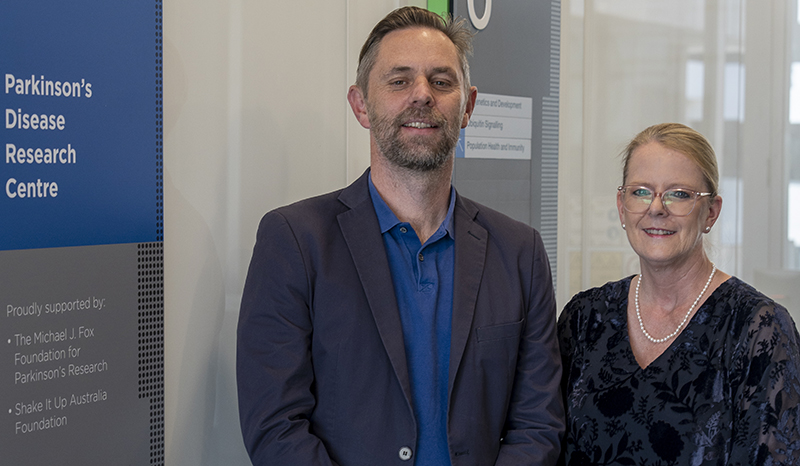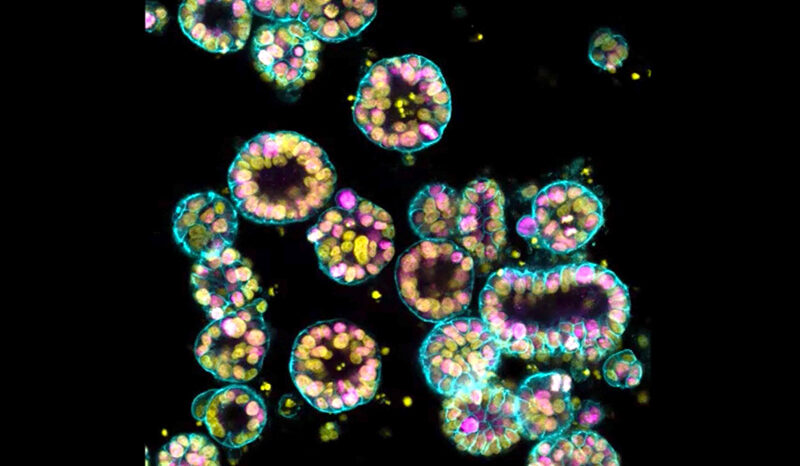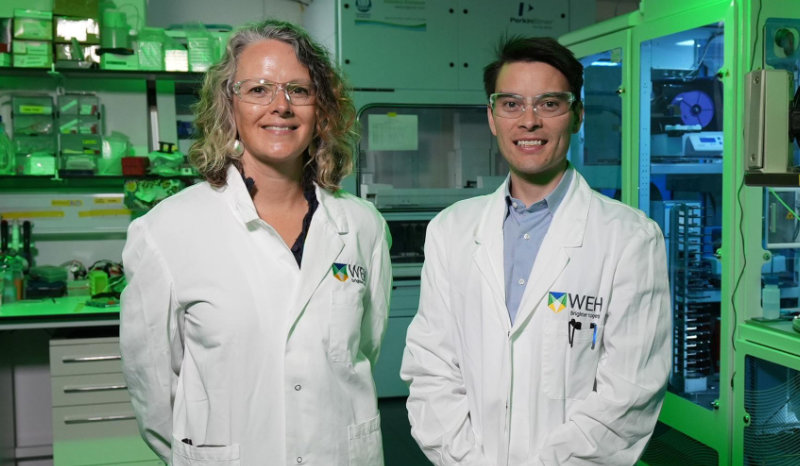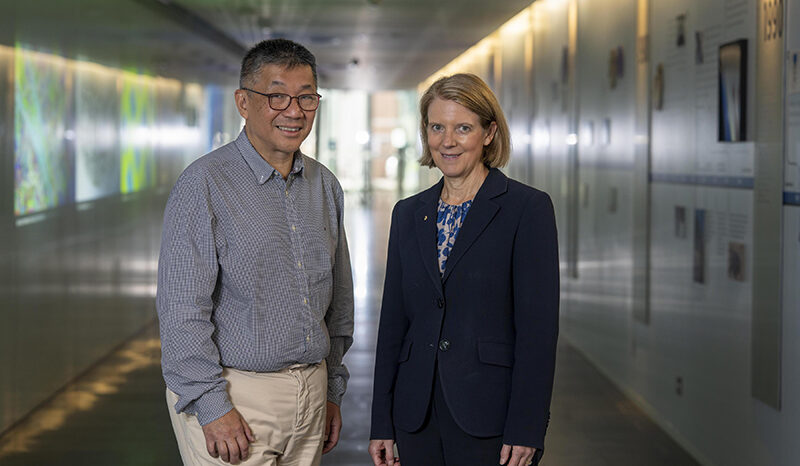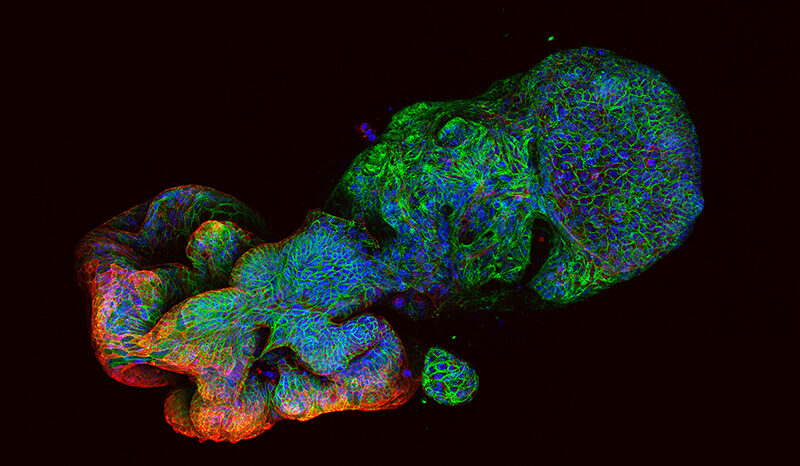Grant
I am the head of the Parkinson’s Disease Research Centre at WEHI and a lab head in the Ubiquitin Signalling Division. I’m a cell biologist and have spent much of my career trying to understand how and why cells die. My team focuses on how we can protect cells from dying when they shouldn’t in neurodegenerative diseases, like Parkinson’s.
The classical movement symptoms in people with Parkinson’s, such as slow movement and tremors, are caused by the loss of specific nerve cells that produce dopamine, a chemical vital for the control of muscles and movement.
A major focus in my lab is the role that mitochondria, the powerhouses in our cells, play in neuron survival. We’re investigating how to target mitochondria and cell death pathways to protect neurons in people with Parkinson’s.
The consumer program at WEHI is one of the first and largest of its kind in Australia. We must learn from consumers to be able to progress our research and translate our findings to the clinic. I feel hugely privileged to have them as an integral part of our centre as their advice helps us direct and elevate our research.
Sheenagh, who has young onset Parkinson’s, joined the consumer program in 2022. From speaking with her and others with Parkinson’s, you get an insight into their very personal and inspirational journeys. They help us understand that not everyone’s experience with Parkinson’s is the same.
We have a duty as researchers to engage with the Parkinson’s community and communicate our complex research. Consumers like Sheenagh help us do this more effectively.
Sheenagh’s story really hits home the need for disease-modifying therapies for Parkinson’s that can stop or slow progression. Her passion and drive to help others by sharing her powerful story, leading support groups, and becoming chair of the consumer reference group for the Parkinson’s Disease Research Centre, is inspiring.
To understand the complex nature of Parkinson’s and to enable a precision medicine approach, we are currently creating a biobank of samples from individuals with Parkinson’s. We are doing this in partnership with Dr Andrew Evans, Head of the Movement Disorders Program at the Royal Melbourne Hospital. These samples will not only be a valuable resource for WEHI’s research, but also for other collaborating institutes.
Drug discovery is challenging and takes a long time, but if we work together with others to tackle the problem, we’ll get there a lot quicker.



